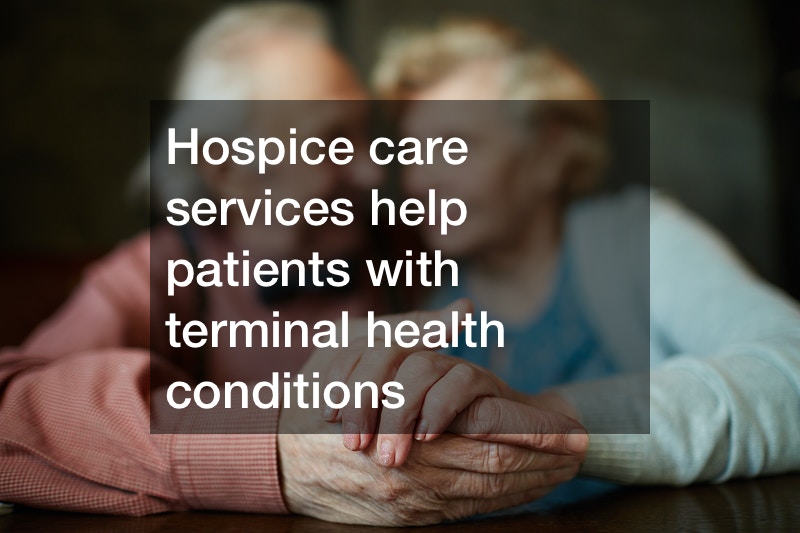
In today’s world, hospice care services are widely used in helping patients with terminal health conditions as well as family members. Normally smaller than most hospitals, hospice facilities do not attempt to cure diseases but are instead more concerned with the physical and emotional aspects of an illness.
Active hospice care is often associated with the elderly because this age group is usually inflicted with the most serious conditions, from terminal cancer to degenerative diseases. The services are conducted by nursing personnel, carried out under the guidance of medical doctors. However, the emphasis is mostly on palliative care, specifically the comfort of the patients and the control of pain. The treatment will often include the administration of pain-relieving medications. Hospice care is generally defined as the treatment of those who are not be expected to live more than six months.
Alternatives to hospice services provided in designated facilities include hospital settings and in-home care. Home assistance can give family members the opportunity to be with their loved ones who are also receiving professional care. Both at home health and hospice care services are normally covered by private insurance or government plans, including Medicare.
Hospice care is some of the most difficult, and rewarding, medical care available. The history of hospice goes as far back as the 11th century when a religious order concerned about the health and welfare of pilgrims traveling to Jerusalem set up hospitals where pilgrims could be cared for and have a place to stay. Today, the majority of those who go into hospices are people over 65, which by 2030 will be 20% of the population of the United States.
Hospice care is designed to provide staff who are on call every hour of the day, but this doesn’t mean volunteers aren’t welcome. This is especially true in a holistic care hospice, where the patients’ whole lives, not just their disease or disorder, are being actively treated and enhanced. If you’ve never thought about volunteering at a holistic hospice, here are a few reasons you should.

- Assisting with hospice care can give purpose to your own life. Many of us live in sink of selfishness, even if it’s not on purpose. We get up and take care of ourselves, and then we go to work to earn money to use on things we need and want. Our day is marked by social media and its interactions that are designed to make us feel better, and by eating, drinking, exercising, and even watching TV in ways that make us feel well or promote our own health. There’s nothing wrong with wanting to feel well, with good health practices, or with earning money to improve our lives. But there’s also nothing like the feeling that comes from knowing you’ve given real, substantial, and meaningful help to another person even when they cannot pay you back in any way.
- Assisting with hospice care could help you grow emotionally and spiritually. Every one of us is going to die and coming to terms with our own mortality is one of the most difficult adult rites of passage. Some of us deal with it better than others, and many things can be the catalyst that helps us deal with this reality. Volunteering at a hospice and seeing how others face death can help us understand what’s going to happen to us and face it with maturity of emotion and spirit, determined to make something useful of our lives before the end.
- You might make meaningful relationships. Many of our relationships are based on trivial things. We like the same shows, we read the same books, we happen to spend a lot of time in the same place. We fall in with our friends at school and at work. Too few of us know what it is to make a friend out of shared hardship, and volunteering to help with hospice care can mean developing meaningful relationships with family members as you join them in hard moments that are otherwise very private.
- Assisting with hospice care will help you focus on what’s truly important in life. The truly important is often lost in a sea of the trivial, as well as buried under the demands of urgent but ultimately less meaningful demands. Volunteering among those who are facing the end of life and the family and friends who support them can mean you find out what makes life worth living. You might just then find yourself inspired to live as if it is.
Volunteering at a hospice is one of the best things you can do to serve other people: but it’s also something that could change your own life. It could help you focus on the important, grow as a person, and live a more meaningful life.
